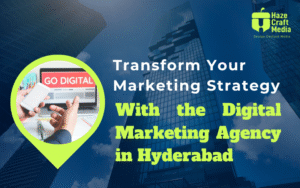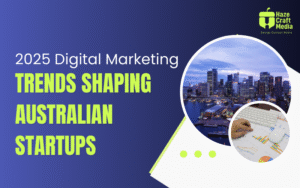Marketing automation refers to the use of software tools to automate repetitive marketing tasks such as email campaigns, social media posting, lead nurturing, and customer segmentation. When powered by AI, this automation becomes more intelligent—analyzing data, predicting user behavior, and optimizing marketing strategies in real-time.
AI marketing automation combines machine learning, predictive analytics, and big data to deliver hyper-personalized customer experiences. It enables marketers to make data-driven decisions, minimize human error, and focus more on strategic creativity rather than manual execution.
Key Applications of AI in Marketing Automation
1. Customer Segmentation and Targeting
Traditional marketing relies on basic demographics for segmentation. AI, however, analyzes vast amounts of behavioral and transactional data to uncover nuanced customer profiles. It segments audiences not just by age or location, but also by purchase behavior, browsing patterns, and engagement history.
This allows marketers to create highly targeted campaigns that speak directly to a customer’s current needs or interests—boosting engagement and conversions.
2. Predictive Analytics for Lead Scoring
AI-powered platforms can score leads more accurately by analyzing past interactions, predicting the likelihood of conversion, and prioritizing high-value prospects. Tools like Salesforce Einstein and HubSpot’s AI-powered CRM use predictive analytics to help sales and marketing teams focus their efforts on leads that matter the most.
3. Personalized Email Marketing
AI customizes email subject lines, content, and send times based on a user’s behavior. Platforms like Mailchimp, ActiveCampaign, and Sendinblue use AI to suggest the best timing and content structure for email campaigns, significantly improving open and click-through rates.
4. Chatbots and Conversational AI
AI-powered chatbots are transforming customer support and engagement. Tools like Drift, Intercom, and Tidio use natural language processing (NLP) to respond to queries in real time, guide customers through sales funnels, and collect data for future interactions.
These chatbots operate 24/7, offering instant responses, reducing support costs, and improving customer satisfaction.
5. Dynamic Content Generation
AI tools can now generate marketing content—from product descriptions to ad copy. OpenAI’s GPT models, for example, are being used to create engaging blog posts, video scripts, and social media content tailored to different audiences. Platforms like Jasper.ai and Copy.ai leverage this technology to create quality content at scale.
6. Social Media Listening and Sentiment Analysis
AI tools can monitor brand mentions and sentiment across platforms like Twitter, Instagram, and Facebook. With tools like Sprout Social, Hootsuite Insights, and Brandwatch, marketers can understand how audiences feel about their brand in real time and adjust strategies accordingly.
7. Automated Ad Bidding and Optimization
Platforms like Google Ads and Facebook Ads use AI to automatically bid for ad placements, test creatives, and optimize campaign performance based on user interactions. This results in higher ROI and lower acquisition costs.
Benefits of Using AI in Marketing Automation
- Increased Efficiency: Automating repetitive tasks saves time and resources, allowing marketers to focus on strategy and creativity.
- Improved Customer Experience: AI ensures personalized, timely, and relevant communication, boosting satisfaction and loyalty.
- Higher Conversion Rates: Smarter targeting and optimized messaging result in better conversion and engagement metrics.
- Data-Driven Decision Making: AI analyzes large data sets quickly, offering actionable insights that are often overlooked by humans.
- Cost Reduction: By improving efficiency and targeting, businesses reduce wasteful spending on ineffective campaigns.
Challenges and Considerations
While the benefits are substantial, there are also challenges:
- Data Privacy & Compliance: AI systems rely on vast amounts of data, raising concerns around privacy and regulations like GDPR.
- Implementation Costs: Initial setup and training of AI tools can be expensive and time-consuming for small businesses.
- Dependence on Data Quality: AI is only as good as the data it’s fed. Inaccurate or incomplete data can lead to faulty predictions.
The Future of AI in Marketing
AI will only grow more sophisticated, with advancements in generative AI, deep learning, and voice assistants shaping the future of marketing automation. Brands will increasingly rely on AI to deliver seamless, predictive, and omni-channel customer journeys.
Imagine an AI that can:
- Automatically adjust your marketing strategy in real-time based on customer behavior
- Create customized landing pages for each segment of your audience
- Interact with customers via voice and text across platforms with human-like fluency
These are not far-fetched possibilities—they are rapidly becoming reality.
Conclusion
AI is revolutionizing marketing automation by making campaigns more intelligent, customer-focused, and results-driven. Whether you’re a global brand or a growing startup, integrating AI into your marketing toolkit is no longer optional—it’s essential for staying ahead in today’s digital-first economy.
From personalized content to predictive lead scoring and real-time customer service, AI offers powerful tools to elevate your marketing game and deliver unforgettable customer experiences.








